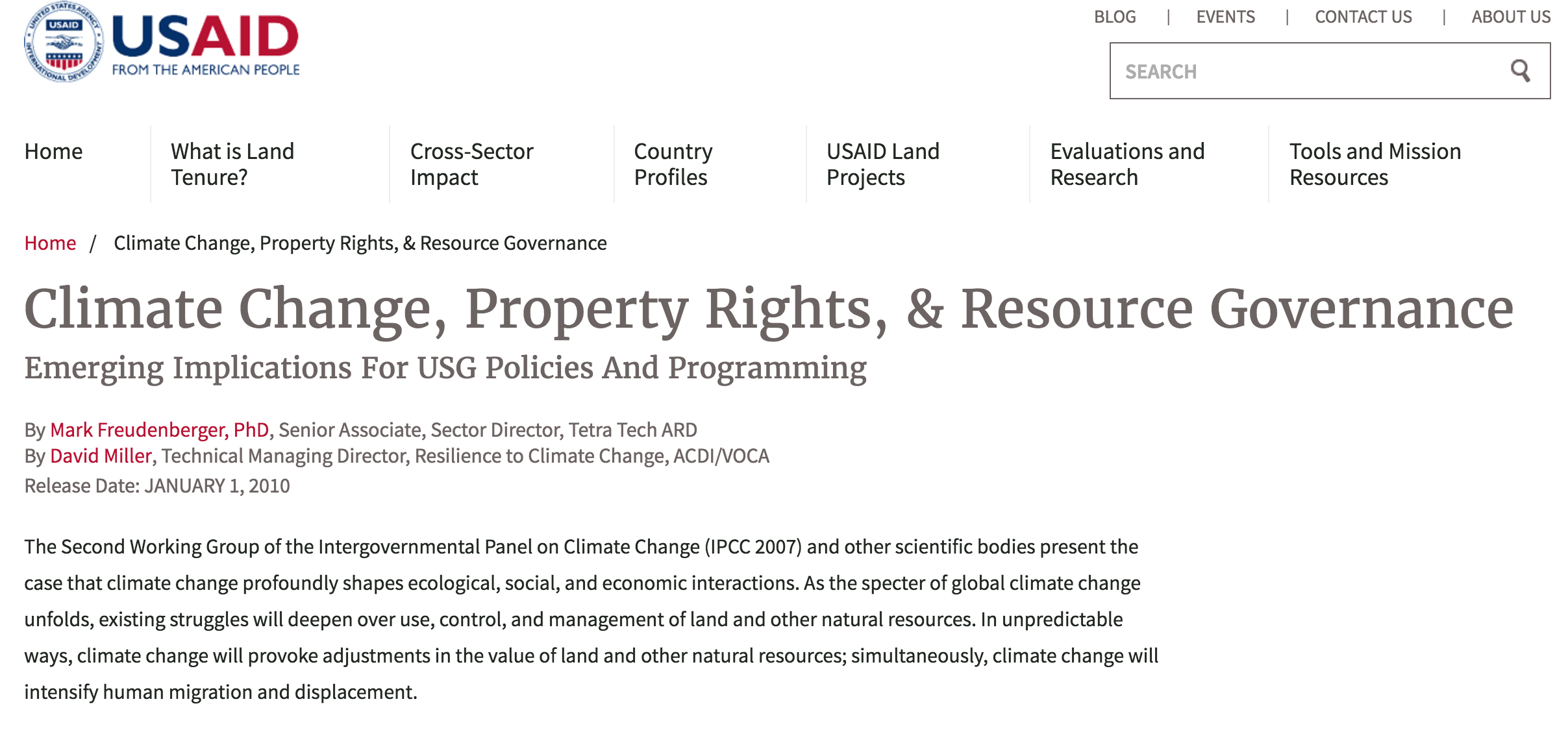Climate Change, Property Rights, & Resource Governance
The Second Working Group of the Intergovernmental Panel on Climate Change (IPCC 2007) and other scientific bodies present the case that climate change profoundly shapes ecological, social, and economic interactions. As the specter of global climate change unfolds, existing struggles will deepen over use, control, and management of land and other natural resources. In unpredictable ways, climate change will provoke adjustments in the value of land and other natural resources; simultaneously, climate change will intensify human migration and displacement.






